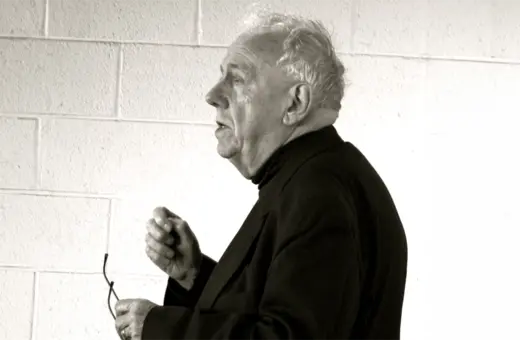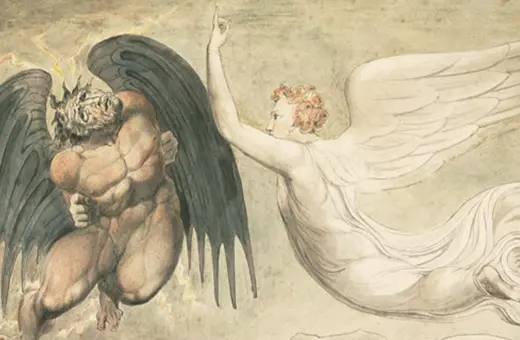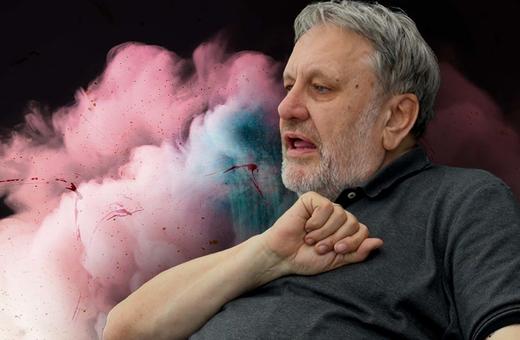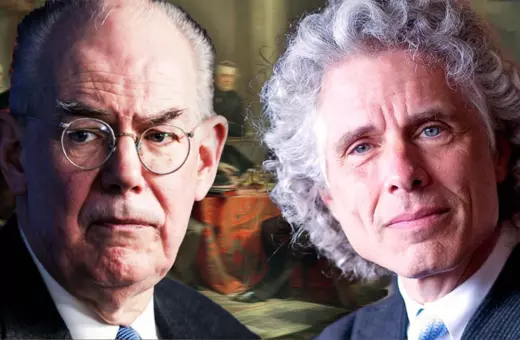It’s Groundhog Day, again! The popular film explored an idea that religion and philosophy had previously grappled with: What if time isn’t linear, but cyclical? What if we are condemned to relive our lives again and again, to eternity? Groundhog Day presents this possibility as a challenge but also an opportunity: to imagine what the best versions of ourselves could be, even if the world around us remained the same. Nietzsche, on the other hand, imagined an eternal recurrence in which nothing changed, every little detail of our lives was relived in exactly the same way, for eternity. He recognized the idea was terrifying, but he also saw it as an exercise in affirming our existence, even the most horrible aspects of it, writes Matt Bennett.
What if some day or night Bill Murray were to steal into your loneliest loneliness and say to you: ‘This day as you now live it you will have to live innumerable times again; and there will be nothing new in it, but every pain and every joy and every thought and sigh must return to you.’ Would you not throw yourself down and gnash your teeth and curse him? Or would you answer him: ‘You are a God, Bill Murray, and never have I heard anything more divine’
A surprisingly diverse variety of religions and ethical systems have invoked something like this scenario, itself a paraphrase of a passage from the philosopher Friedrich Nietzsche (the original is sadly without Bill Murray). Variations on the theme of recurrence and cyclical time also appear in, for instance, Buddhism, Judaism, and Stoicism. Often the purpose of such considerations is to help us confront a fundamental existential question: what would we do if we took seriously the humbling suggestion that whatever we do, the world will end up right back up at the same spot where we stand now?
Groundhog Day offers one answer to how we should respond. Bill Murray plays Phil Connors, an arrogant, cynical, self-centred snob whose work as a TV meteorologist takes him to Punxsutawney to cover Groundhog Day, officially taking place every February 2nd, when celebrity groundhog Punxsutawney Phil emerges from oracular hibernation to proclaim the end of winter. To his dismay, human Phil wakes up the next morning to find that it is inexplicably, again, Groundhog Day, with every beat of the previous day repeated just as it was the day before. After one more repetition it dawns on him that he appears to be fated to wake up every morning to Groundhog Day, over and over, with no end to the repetition in sight.
___
Repetition of the same day doesn’t have to lead to despair and can be an opportunity for growth and redemption. But what if redemption never comes?
___
At first Phil doesn’t respond terribly well. Disbelief, confusion, anger, and dismay all hit him in the first few days. Then comes liberation. Phil realizes that since there is no tomorrow, he can indulge himself without worrying about the consequences.
But as the story continues, Phil grows tired of his empty hedonism. To make his way to the story’s dénouement, he must mature, break out of his arrested-development middle-aged adolescence. His time loop is his chance to redeem himself and learn the value of caring for others, devoting his time to helping the residents of Punxsutawney, and ultimately learning to love.





















Join the conversation